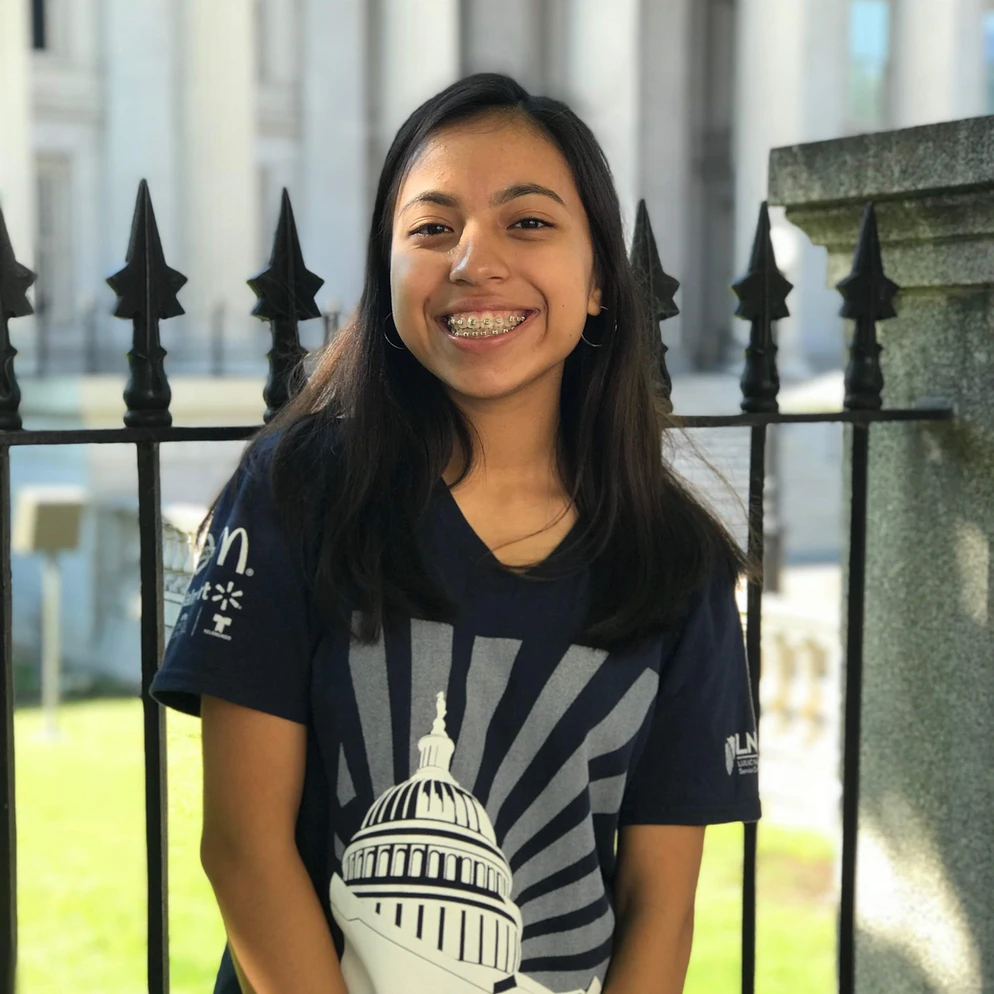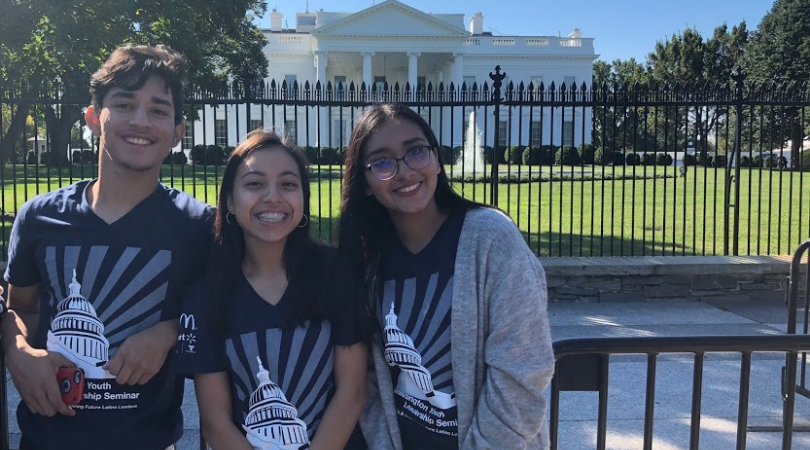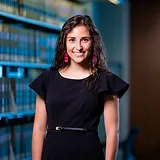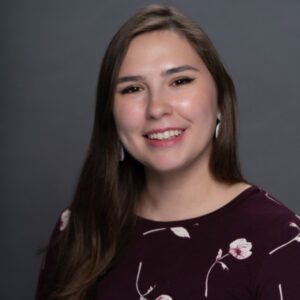
If you are looking for an inspiring story spurred from within generation Z, enter Cassandra Hernandez. She is only a junior in high school yet she has already advocated for critical education policy, attended protests in her community, and stood as a voice against gentrification in her Oak Cliff neighborhood. As our youngest feature subject thus far, we hope you are as impressed as we are, here at Lone Star Parity Project. Meet our Gen Z hero: Cassandra.
Though Cassandra has never personally experienced barriers because of her gender, the issue of gender discrimination is not lost on her. She noted that she is lucky to have grown up not only in an extremely supportive household but also an empowering school environment. Cassandra believes her political journey began when she was accepted to Irma Lerma Rangel’s Leadership School, an all-women’s magnet school in Dallas ISD. There, she was exposed to left-leaning values that differed from the more conservative or traditional values that her family exhibited in the home. Cassandra was inspired to research issues important to her community and compare the differing opinions associated. She felt that she needed to form her own political views outside of the information she had been exposed to, saying, “you know… what are my beliefs?”
In 7th grade, Cassandra was invited to attend the Latino Summit, organized by the Texas Senate Hispanic Caucus, with a variety of speakers including attorneys, elected officials, and community leaders. There, she remembers learning about different issues affecting her hometown of Dallas. Particularly, Cassandra recalled meeting role model Congresswoman Sylvia Garcia(then, State Representative Garcia), Cassandra looked up to Congresswoman Garcia because of the Congresswoman’s tenacity as a Latina in politics. Cassandra said, “here is someone who has a background like me, looks like me and is using her voice to give a voice to other people.” However, Congresswoman Garcia wasn’t Cassandra’s first role model – her first role model was Cassandra’s mom.
Cassandra described her mom as a really strong woman who has faced “a lot of hurdles but never let it consumer her.” In search of a better job to support her family, Cassandra’s mom immigrated to the United States at age twenty-two. Her mother’s determination has been inspiring to Cassandra, saying “she always has the right thing to say to continue to push me forward.”
Attending an all-women’s school and meeting incredible women role models at a young age, Cassandra was lifted by her peers to grow as an advocate for her community. By 2015, Cassandra attended her first protest. It was the March Against Hate protest, a community rally formed against then-candidate Donald Trump when he visited Dallas for a campaign rally. She remembers, while at the protest, that she was surrounded by people who care – whether they were supporters or counter-protestors. At that moment, Cassandra realized that she wanted to put herself in a position to influence policy as a decision-maker. She said, “there are others in this world who gained this momentum and have used this power in a wrongful way that has hurt her community negatively.” Cassandra hopes to make an impact in her community to counteract negativity.
Particularly, Cassandra has grown an interest in combatting gentrification, especially in Oak Cliff neighborhood. Gentrification is the catapult of the affordable housing crisis in urban areas. Through gentrification, low-income or affordable communities are redeveloped into expensive districts that become monetarily unattainable to the original residents. When her own neighborhood was being redeveloped with new apartments, she remembers thinking “where are all of those businesses that were one there… where are the homes?” Cassandra worries that current residents at risk of gentrification are not receiving the proper compensation for the value of their property.
Additionally, Cassandra has a passion for education policy. In Dallas ISD, though she recognizes that “they are on the rise”, Cassandra believes that there are distinct differences in resources available to schools. Most notable, she experiences a first-hand difference between resources granted to comprehensive schools versus magnet schools. Cassandra recognizes that she is privileged to attend a magnet school with readily available resources, such as a college preparedness counselor, while her friends from her home district school have counselors that are constantly booked or over-worked. She hopes to mitigate these differences in resources through her advocacy in education policy.
Recently, she received the opportunity to visit Washington, D.C. with LULAC’s National Educational Service Centers, where she was able to co-mingle with politically-vested high school juniors and seniors from across the country with an interested in education policy. Participants were able to speak with elected officials and advocate for various pieces of legislation affecting the LULAC education agenda.
Now, Cassandra Hernandez is preparing to attend (and apply) for colleges. In fact, she dedicated her Spring Break to navigating potential academic programs and college majors. As such a young and impactful advocate, you can expect to see this Gen Z hero’s name again.





